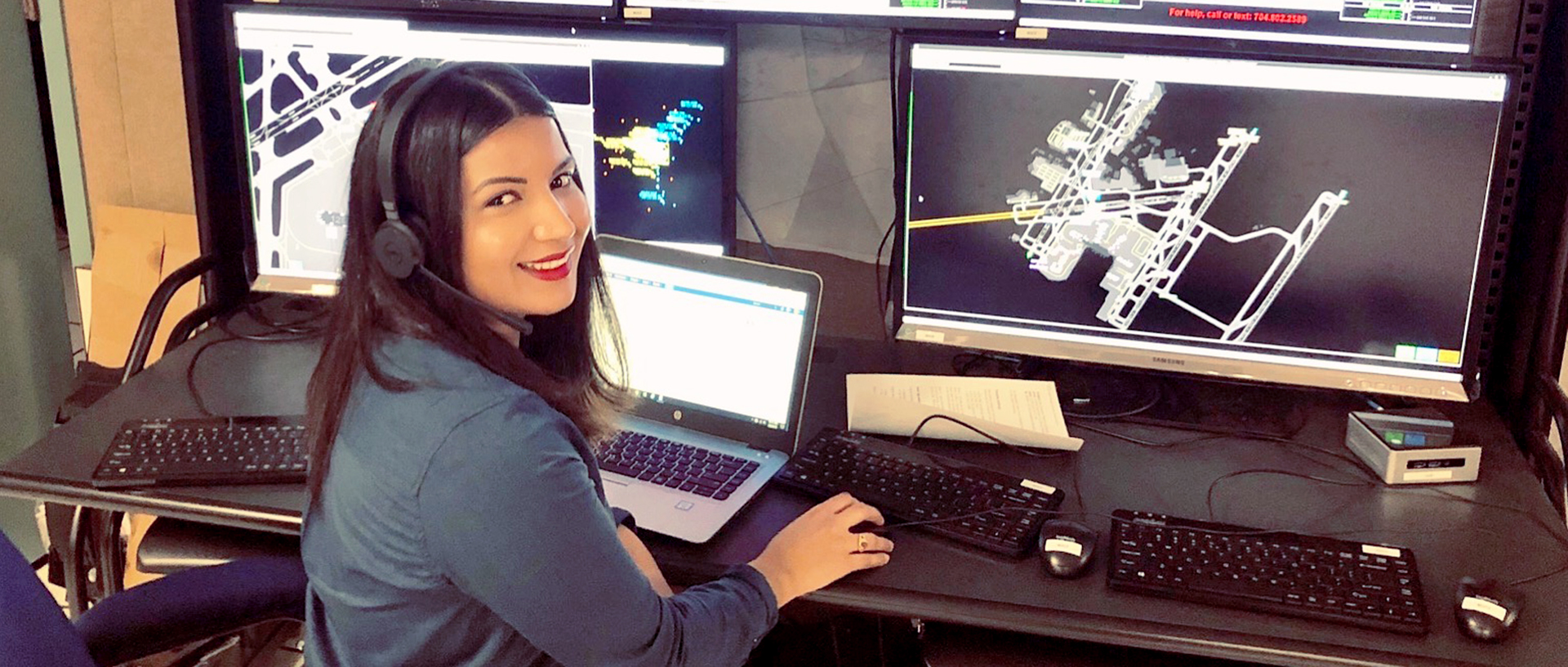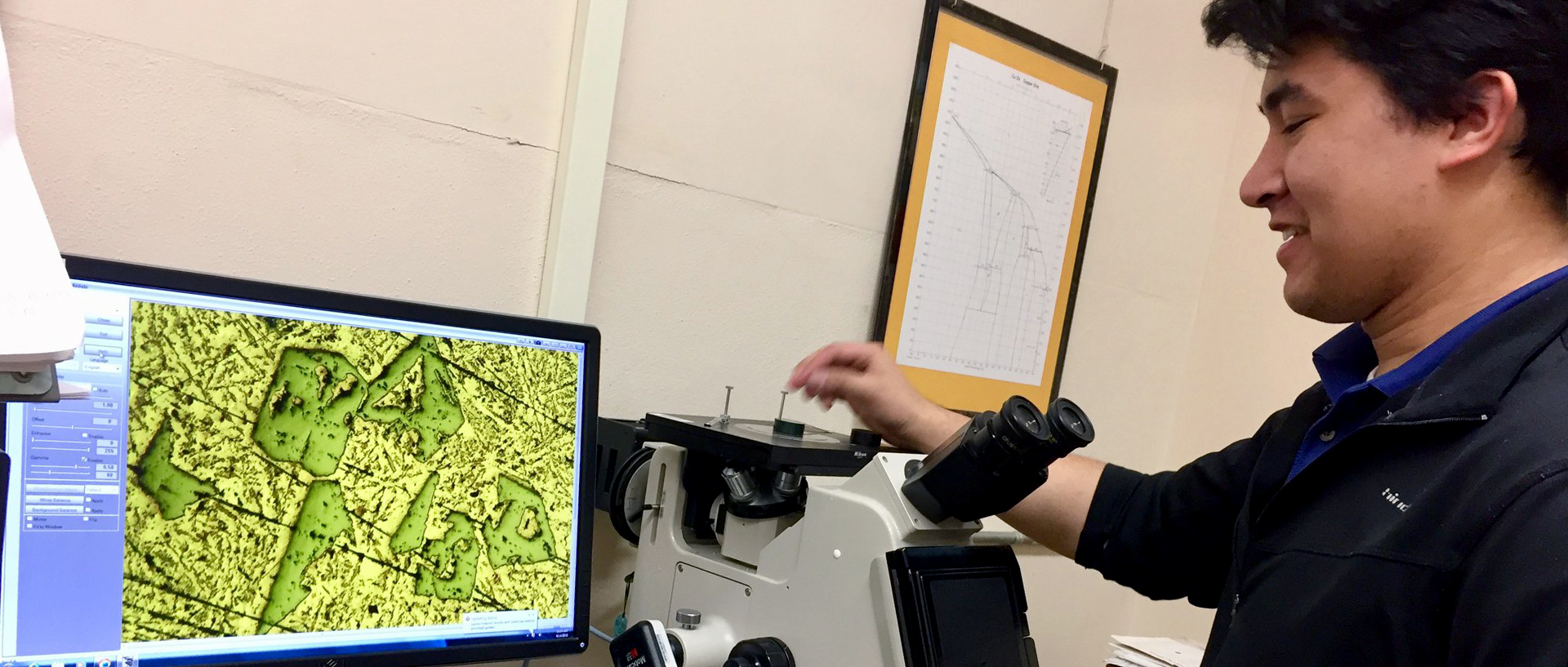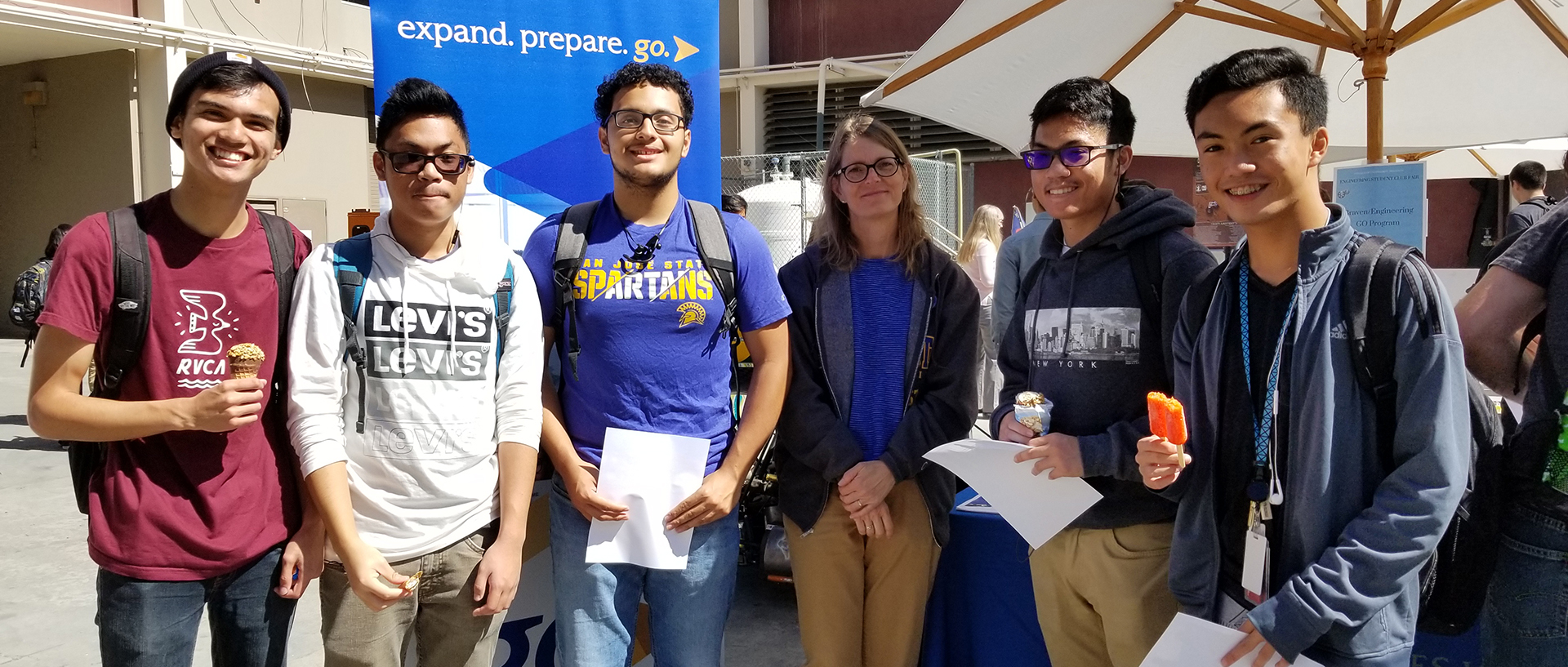Strategic Plan Priority Areas
- Priority Area: Innovative and Experiential Learning

- Provide increased opportunities for student involvement in career pathway exploration
in their first two years in the College.
- Key Initiatives:
- Partner with Career Center on marketing existing programming
- Measures of success:
- Number and percent of first and second year and new transfer students engagement with Career Center Braven and MEP programming
- Key Initiatives:
- Improve the innovative and experiential learning environment in classrooms
- Key Initiatives:
- Increase participation in and funding for faculty and staff training in instructional technology and pedagogy.
- Additional training opportunities on leveraging technology in the classroom.
- Funding for faculty to study effectiveness of course delivery modes.
- More funding for faculty curriculum development and course redesign.
- Improve safety practices in teaching labs and project spaces.
- Measures of success:
- Number and percent of eligible faculty who participate in training.
- Number of curriculum development projects completed.
- Student performance on learning outcomes related to safety.
- Key Initiatives:
- Increase hands-on learning opportunities (e.g., research and internship opportunities,
contest teams and clubs).
- Key Initiatives:
- Raise student awareness of hands-on learning experiences
- Measures of success:
- Number and percent of eligible students participating in learning opportunities
- Key Initiatives:
- Provide increased opportunities for student involvement in career pathway exploration
in their first two years in the College.
- Priority Area: Research and Scholarly Activity

- Provide opportunities, incentives, and support infrastructure for faculty research
including laboratory safety
- Key Initiatives:
- Provide incentives, funding, and recognition to faculty and students who conduct research and disseminate research results
- Connect faculty to campus resources to support proposal writing/development
- Develop laboratory specific safety plans
- Measures of success:
- College RSCA productivity metric
number and dollar amount of grants submitted - Percent of labs with functional lab specific safety protocols
- College RSCA productivity metric
- Key Initiatives:
- Support and promote interdisciplinary and collaborative research opportunities
- Key Initiatives:
- Identify and reduce barriers to collaborating with other departments, universities and industry partners
- Continue interdisciplinary seminar series
- Continue developing interdisciplinary research space and infrastructure
- Continue joint PhD development
- Measures of success:
- Number and dollar amount of multi-department, multi-institution, joint industry research products and grants
- Number of attendees at seminars
- Number of interdisciplinary research spaces created/upgraded
- Milestones towards joint PhD approval
- Key Initiatives:
- Raise awareness of and support student participation in research at both the undergraduate
and graduate levels
- Key Initiatives:
- Reinstate the research fair
- Increased support for student presentations (poster or speaker) at conferences
- Promote independent Study "Special Topics" opportunities to allow student research for credit
- Measures of success:
- Number of students [differentiate bet. undergrad and grad] mentored during research projects
- Key Initiatives:
- Increase opportunities to broaden research skills for both students and faculty.
- Key Initiatives:
- Provide skill-building opportunities and resources for faculty and students.
- Measures of success:
- Number of participants in skill building opportunities
- Key Initiatives:
- Increase inclusion of historically underserved students in research projects and
other research based learning opportunities.
- Key Initiatives:
- Promote research programs through MEP and student affinity clubs
- Feature student researchers in internal and external publications
- Measures of success:
- Number of historically underserved students participating in these programs
- Key Initiatives:
- Provide opportunities, incentives, and support infrastructure for faculty research
including laboratory safety
- Priority Area: Student Experience and Success

- Continue progress towards Graduation Initiative 2025 retention and graduation goals
- Key Initiatives:
- Help students find the best major for their interests and skills.
- Increase opportunities for form a community / build relationships with other students
- Provide resources and opportunities that motivate and prepare students for possibilities that exist after graduation
- Provide math support for incoming students
- Measures of success:
- Retention and graduation rates
- Percentage of students participating in Engineering student clubs and activities
- Number and academic outcomes of participants in summer programs such as EXCEED
- Key Initiatives:
- Increase percentage of full-time job placement rates and/or continuing education for
all students by time of graduation
- Key Initiatives:
- Provide events and other channels for students to be connected into the trends that are relevant to industry.
- Incentivize career-readiness activities (i.e. extra credit, prizes, etc.)
- Measures of success:
- Job placement percentage
- Percentage of students participating in career-readiness activities
- Key Initiatives:
- Make learning and research resources, support services, technology, and collaborative
opportunities accessible to all students
- Key Initiatives:
- Provide quick-hits / one-sheeter with links to where to go
- Provide parent education on available support services and the best ways to support students in coordination with the Student Affairs Family Advisory Board
- Improve availability of Maker Space
- Improve communication with students surrounding support services and opportunities
- Measures of success:
- Student satisfaction and engagement survey to measure efficacy of different tools/methodologies, etc.
- Percentage of students opening student newsletter communications
- Percentage of students utilizing services
- Key Initiatives:
- Continue progress towards Graduation Initiative 2025 retention and graduation goals
- Priority Area: Industry and Community Partnerships

- Create collaborative and mutually beneficial community and industry partnerships
- Key Initiatives:
- In partnership with the Division of Research and Innovation, create infrastructure to support entrepreneurship in the College of Engineering
- Increase number of students involved in Extended Studies Off Campus and Corporate Programs
- Measures of success:
- Number of faculty and students participating in entrepreneurship
- Number of extended studies enrollments
- Key Initiatives:
- Increase student participation in internships and coops
- Key Initiatives:
- Improve professional skills students need to compete for and be successful in internships and co-ops
- Create mechanism to track student internships
- Evaluate application and internship experience for equity/inclusion
- Measures of success:
- Percentage of students participating in internships and co-ops each summer and semester
- Percentage of students looking for internships but unable to find one
- Key Initiatives:
- Develop an engaged alumni community
- Key Initiatives:
- Establish alumni engagement plans at department and college levels
- Establish an early career alumni recognition award that recognizes recent graduates who have made a contribution to community and society
- Measures of success:
- Alumni attendance at department and college events
- Alumni giving numbers, both dollar amount and headcount
- Active contacts in alumni directory
- Key Initiatives:
- Create collaborative and mutually beneficial community and industry partnerships
- Priority Area: Diversity, Equity, and Inclusion (DEI)
- Create, support, and facilitate an inclusive learning and working environment for
all faculty, staff, and students
- Key Initiatives:
- Create collaborative approach and measurement strategy and analysis to understand barriers that historically underserved students are facing
- Increase awareness and importance of diversity for faculty members and staff. Share what resources are available
- Create a standing DEI committee within the College of Engineering
- Measures of success:
- Equity gaps in courses, retention and graduation rates
- Campus climate survey results
- Key Initiatives:
- Increase external funding to support DEI initiatives
- Key Initiatives:
- Incentivize faculty participation through internal seed funding opportunities
- Measures of success:
- Amount of external support for DEI initiatives
- Amount of external support for DEI initiatives
- Key Initiatives:
- Ensure more balanced and equitable distribution of service
- Key Initiatives:
- Initiate review of the distribution of and compensation for service activities for faculty, staff, and students across all departments and programs
- Develop and implement plans for improving equity in service loads
- Measures of success:
- Stakeholder survey results
- Key Initiatives:
- Increase diversity of faculty to more closely match the student demographics
- Key Initiatives:
- Collaborate with ASPIRE iChange program and VP of Faculty Success to improve faculty recruitment and retention
- Promote academic career pathways to current students
- Measures of success:
- Faculty demographics
- Key Initiatives:
- Create, support, and facilitate an inclusive learning and working environment for
all faculty, staff, and students